
New ways : stop smoking
Discover an effective approach to smoking cessation that combines medications and intermittent fasting. Learn how to manage smoking addiction and improve your health, reduce financial costs, and enhance your quality of life by breaking free from dependence.
GENERAL
Dr Hassan Alwarraqi
9/15/20246 min read






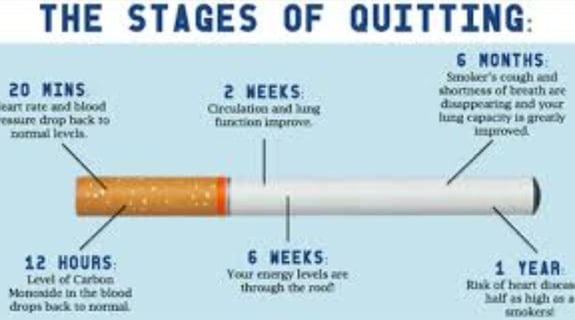

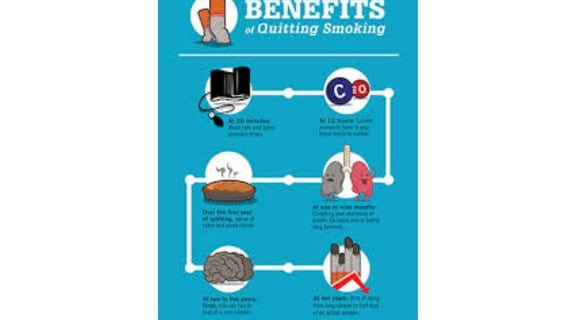



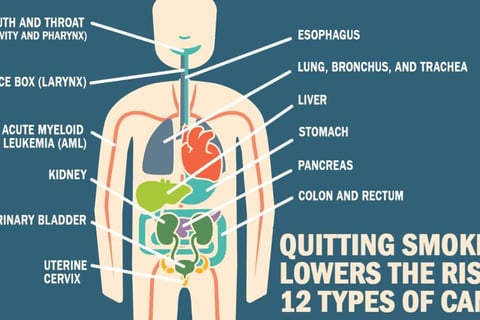

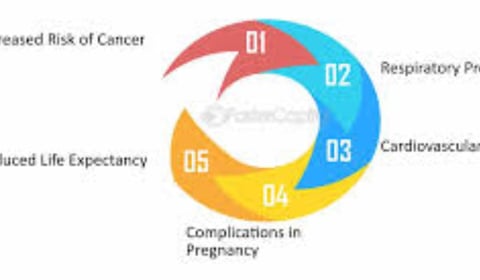

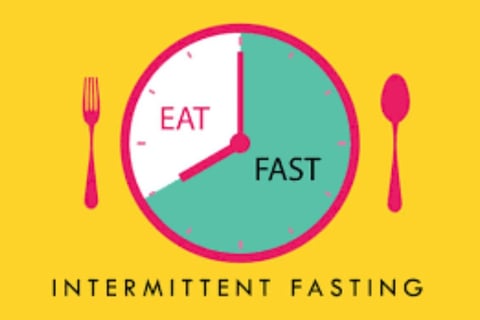

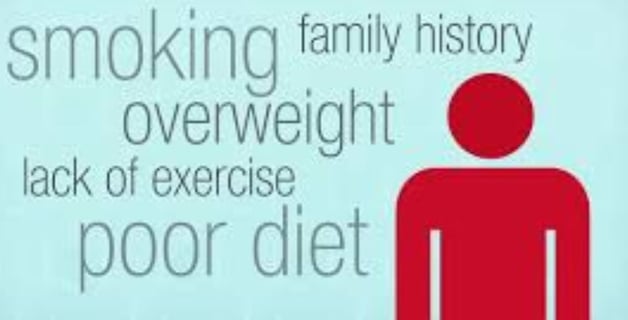



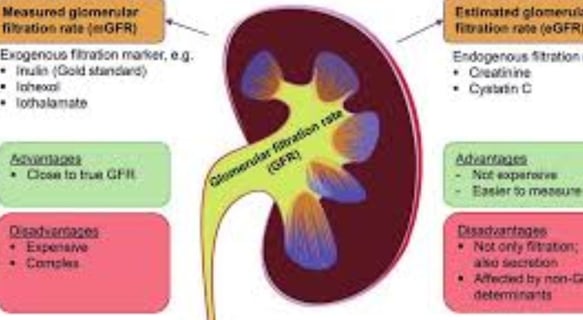

New ways : stop smoking
Smoking cessation: New way to stop
More than 80 percent of smokers wish to cease smoking, but many find it difficult due to their dependence on nicotine.
Nearly 90 to 95 percent of individuals are able to quit independently important of fasting
The dangers associated with smoking are profound.
Tobacco use accounts for one in every five fatalities
chronic health conditions linked to smoking.
Smoking is a significant contributor to cardiovascular diseases, including heart attacks, strokes, and peripheral artery disease,
20% of all cardiac-related deaths attributed to tobacco use
between 80% and 90% of emphysema cases are directly linked to smoking, alongside other respiratory ailments such as chronic bronchitis and pneumonia, which are more prevalent among smokers.
cataracts, sinusitis, dental problems, premature aging of the skin, heartburn, diabetes, osteoporosis,
and two particularly concerning conditions for men: bladder cancer and erectile dysfunction.
even minimal consumption poses health threats. "Light" and "low-tar" cigarettes do not offer any safety advantages over their regular counterparts.
The only truly safe level of tobacco consumption is none at all
The advantages of discontinuing smoking are substantial
even for long-term smokers. In just a few days,
blood vessels will begin to restore much of their normal function that has been compromised by smoking.
improved sense of taste and a recovery in sense of smell
from the effects of tobacco cessation
diseases
chronic bronchitis will lessen, and lung function will show marked improvement within a year.
The risk of heart attack and stroke diminishes within two to five years of quitting, and the risk of lung cancer starts to significantly decrease within five to nine years.
longer life expectancy
quit smoking, regardless of their age, generally have a longer life expectancy than those who quitting
financial situation and country economic burden
will not only enhance your financial coast but also alleviate some of the economic burden on the country
the reality for men who smoke is often quite the contrary.
Smoking is known to harm blood vessels, significantly contributing to erectile dysfunction.
that those who have smoked at any point in their lives are more prone to erectile dysfunction compared to those who have never smoked.
current smokers face even greater risks; men in their 40s who smoke are 2.7 times more likely to suffer from erectile dysfunction than their former smoking or nonsmoking counterparts
not confined to one region
that smoking accounts for nearly 25% of erectile dysfunction cases in China and examples a lot
Cessation can lead to improvements
Erectile dysfunction, like many other health issues linked to smoking, is particularly prevalent among heavy smokers. However, the positive news is that cessation can lead to improvements.
that penile blood flow began to enhance within 24 to 36 hours after quitting.
This serves as a compelling reminder that the optimal time to stop smoking is now
Effect of Fasting on Smoking Addiction
The practice of fasting may have a considerable impact on altering smoking habits,
fasting can serve alone to alleviate smoking
serving as a natural strategy for those aiming to quit smoking.
Evidence suggests that fasting can facilitate the reduction of smoking frequency and assist individuals in their journey toward cessation.
the influence of religious beliefs and strong willpower has been recognized as beneficial in helping individuals to lower or temporarily cease their smoking activities.
medication used
Employing a combination of medications can significantly aid in this process, with the nicotine patch often used in conjunction with lozenges or gum being the most common method.
Notably, Varenicline, a non-nicotine medication, has demonstrated remarkable effectiveness in aiding individuals to quit smoking.
The integration of smoking cessation medications can greatly enhance the probability of success in achieving a smoke-free lifestyle
Smoking & intermittent fasting
The act of smoking does not compromise the fasting state as consuming calories would.
Smoking cigarettes does not directly affect the metabolic processes that are initiated during intermittent fasting
lastly
the use of fasting as important tool in managing smoking is worsley atrial
with or without the help of combination of medications
keywords
fasting, important tool , managing smoking , Worth a try ,with , without the help , combination of medications , intermittent fasting ,Smoking Addiction , health burden , financial coast ,Erectile dysfunction ,longer life expectancy ,chronic diseases ,cancer ,dependence ,
https://www.mayoclinic.org/healthy-lifestyle/quit-smoking/in-depth/nicotine-craving/art-20045454
https://www.webmd.com/smoking-cessation/ss/slideshow-effects-of-quitting-smoking
https://www.thedailystar.net/life-living/health-fitness/news/how-quit-smoking-ramadan-3278121
New Ways to Quit Smoking Immediately: FAQs
Q: Why is quitting smoking important?
A: Smoking has widespread negative health effects, including increased risks of cardiovascular diseases, strokes, respiratory illnesses (such as emphysema and chronic bronchitis), cataracts, sinus issues, dental problems, premature skin aging, diabetes, and osteoporosis.
Smoking also raises the risk of cancers like lung cancer and erectile dysfunction in men.
Beyond health, smoking impacts personal finances and national economies.
Quitting smoking offers immediate and long-term health benefits, improving overall well-being and quality of life.
Q: What are some effective ways to quit smoking?
A: Effective methods include:
Nicotine Replacement Therapy (NRT): Use patches, gum, sprays, or inhalers to curb cravings. Combining two NRT types (e.g., patches + gum) boosts effectiveness.
Prescription Medications: Drugs like varenicline (Chantix) or bupropion (Zyban) reduce cravings and make smoking less pleasurable.
Behavioral Support: Counseling, group therapy, or apps (e.g., NHS Quit Smoking app) to track progress and manage triggers.
Hypnosis: A single hypnosis session may help some quit.
Cold Turkey: Quitting abruptly without external aids.
Gradual Reduction: Slowly cutting down cigarette intake.
Fasting: Can reduce smoking frequency and support quitting.
Personalized Quit Plan: Tailored strategies for practical guidance.
Q: How does Nicotine Replacement Therapy (NRT) help?
A: NRT provides controlled doses of nicotine without harmful tobacco chemicals, easing withdrawal symptoms and cravings.
This lets you focus on emotional and situational triggers.
Combining long-acting (patches) and fast-acting (gum) NRT often works best.
Q: What is varenicline, and how does it work?
A: Varenicline is a non-nicotine medication that blocks nicotine’s effects on the brain, reducing cravings and making smoking less satisfying.
It’s typically started 1–2 weeks before your quit date.
Q: How can I manage smoking cravings?
A: Strategies include:
Delay: Wait 10 minutes and distract yourself.
Chew: Use sugar-free gum, raw carrots, or sunflower seeds.
Exercise: Short bursts of activity to redirect focus.
Relaxation: Deep breathing, yoga, or massage.
Support: Talk to loved ones or support groups.
Avoid Triggers: Identify and plan around situations that tempt you.
fasting : ensure stop smoking haive day ,
Q: What are the benefits of quitting smoking?
A: Benefits include:
Improved heart, lung, and overall health.
Enhanced taste and smell.
Increased energy and savings.
Better skin, teeth, and life expectancy.
Q: How can I stay smoke-free long-term?
A: Tips for success:
Remind yourself why you quit.
Avoid triggers like smoking-associated places or people.
Seek ongoing support from friends or groups.
Manage stress with exercise or relaxation.
If you relapse, don’t give up—learn and try again.
Replace smoking habits with healthy routines.
Reward milestones (e.g., a week or month smoke-free).
Q: Are there alternative ways to quit smoking?
A: Yes, including:
Acupuncture: May ease withdrawal symptoms.
Hypnosis: Uses suggestion to change behavior.
Herbal Remedies: Consult a doctor before use.
Fasting: Reduces smoking frequency. For Muslims, fasting also aligns with religious practices (smoking is prohibited).
Note on Fasting:
Gradually reduces smoking frequency.
Helps quit smoking for half the day initially.
Progressively leads to full cessation.
For Muslims, smoking is considered haram (religiously forbidden).
Final Tip: Quitting is a journey—stay patient, persistent, and celebrate every smoke-free victory!
how long after quitting i feel better
dependent upon the underlying condition , generally , you will feel immediate improvment








